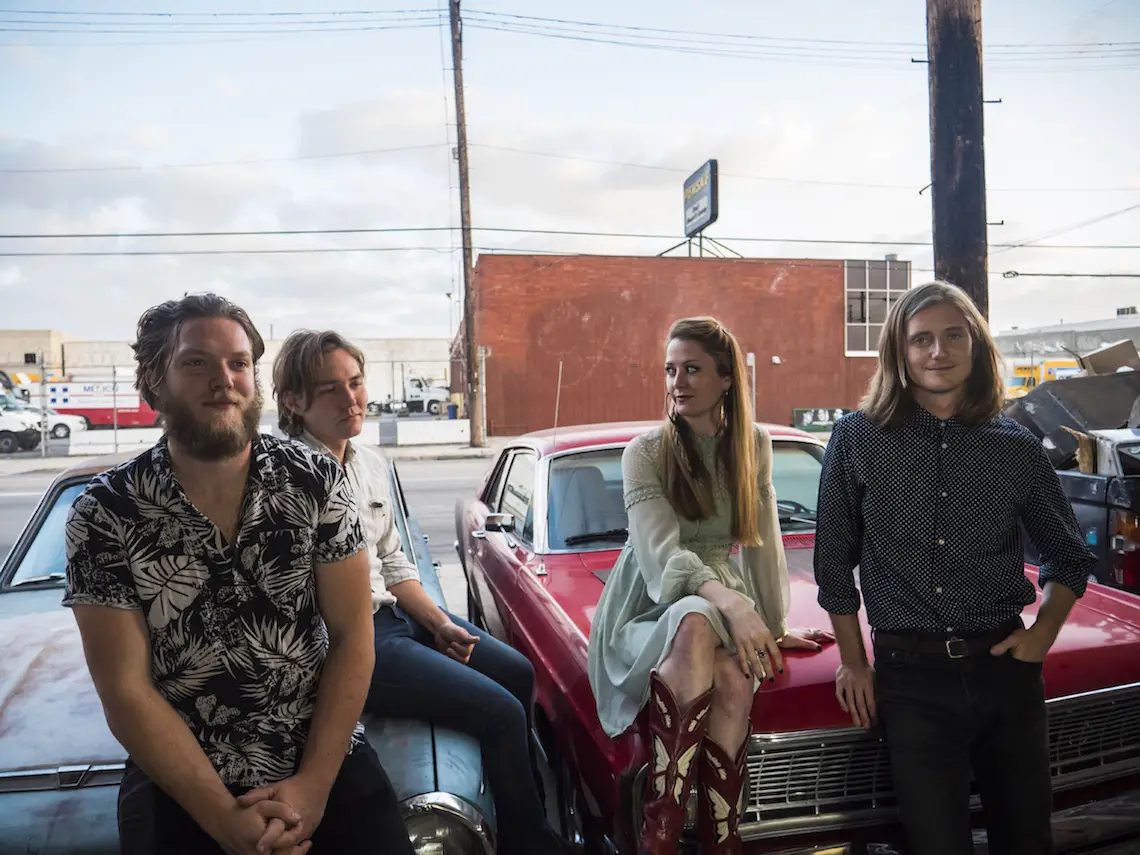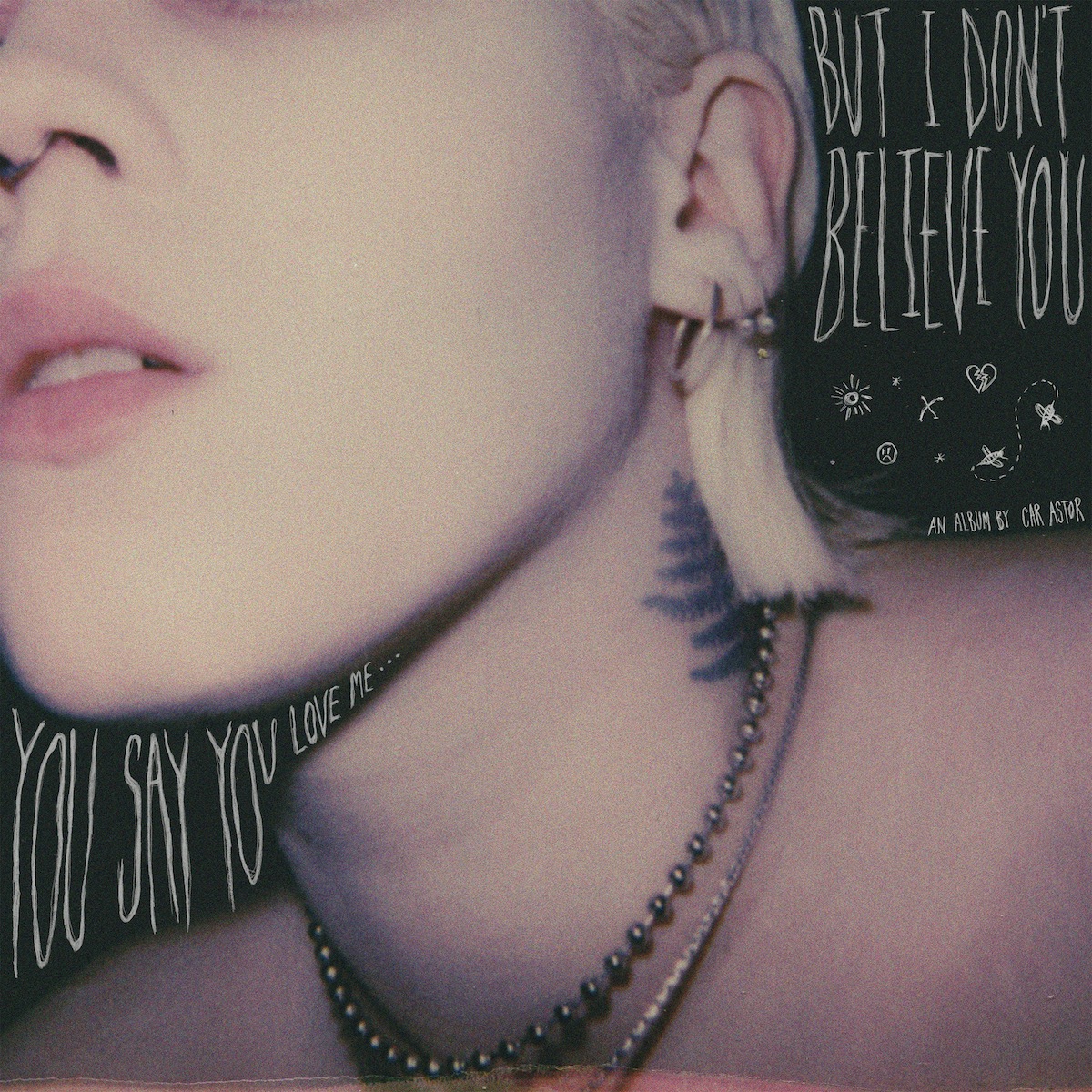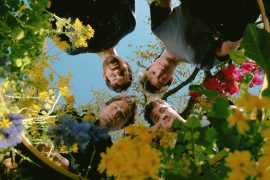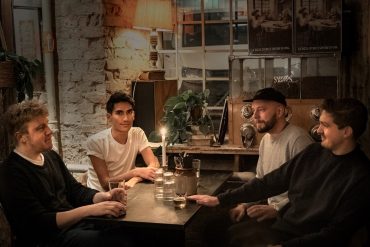Francis of Delirium’s Jana Bahrich dives into the brilliant depths of her radiant debut album ‘Lighthouse,’ a cathartic coming-of-age indie rock reverie that shines bright as she learns to let love’s light into her life.
for fans of Squirrel Flower, Angie McMahon, Holly Humberstone
Stream: “Real Love” – Francis of Delirium
I came home and fell in love, and there was so much light in my life that was pouring into me and out of me. These songs were a reflection of that.
Luxembourg’s Francis of Delirium has always been a beacon – of raw emotion; of uncompromising vulnerability; of heated, visceral energy.
From her earliest releases back in 2020, the indie rock project of singer/songwriter Jana Bahrich has held nothing back in sharing the depths of her heart and soul, which for a long time were full of what can only be described as an unrelenting aching.
Now, she’s a lighthouse; it’s like someone flipped a switch, and the darkness that once permeated her music has been replaced by stunning pools of color. And there’s Bahrich, basking in the sweet glow of her new reality – a world filled with warmth, connection, and love. Make no mistake: That aching is still there, but where Francis of Delirium once dwelled, she now shines. Burning bright and fueled from a fire within, her debut album Lighthouse is a beautifully radiant and spirited record: A cathartic coming-of-age reverie that comes alive as she learns to let love’s light into her life.
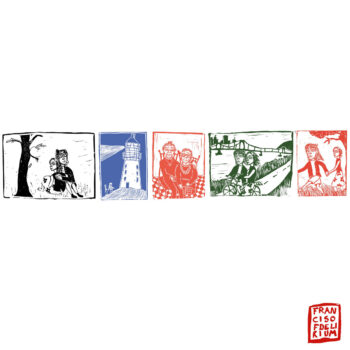
We started the summer off as friends
And you pulled me in when I didn’t expect it
I was only half way home
and you were telling me to let go
Wishing I could just feel indifference
When it’s someone else
I wish that we were different
I was only halfway home
Missing you when I wasn’t alone
Real love isn’t real love when it’s not us…
– “Real Love,” Francis of Delirium
Released March 22, 2024 via Dalliance Records, Lighthouse is as enchanting as it is inspiring: Francis of Delirium’s debut album stays true to its name as 22-year-old Bahrich and her bandmates unapologetically embrace one of the most important aspects of our lives – human connection. Together they create soul-stirring sonic worlds full of passion and tenderness, with rich instrumental harmonies, charged electric guitars, and driving beats serving as powerful building blocks: The foundation of the band’s identity and artistry remains the same as it’s been through their first three EPs – 2020’s All Change, 2021’s Wading, and 2022’s The Funhouse; if anything, Lighthouse is an evolution of that music, an expansion building upon everything that came before it.
“It’s a lot denser and a lot more open simultaneously,” Bahrich reflects. “That density has been pretty constant, maybe not in All Change, but Wading and The Funhouse started to become pretty dense musically. I guess presenting more as like a pop band, a more outward-facing band, a more joyful band, which feels more honest to us. Even performing onstage, I feel like we look like we’re having a good time, because we are – so it’s nice to have some songs now that are pretty joyful and celebratory of love. We’re introducing ourselves as a heart on the sleeve; we make the heavy ones fun too – screaming sad lyrics and painful lyrics is also a pretty joyful experience.”
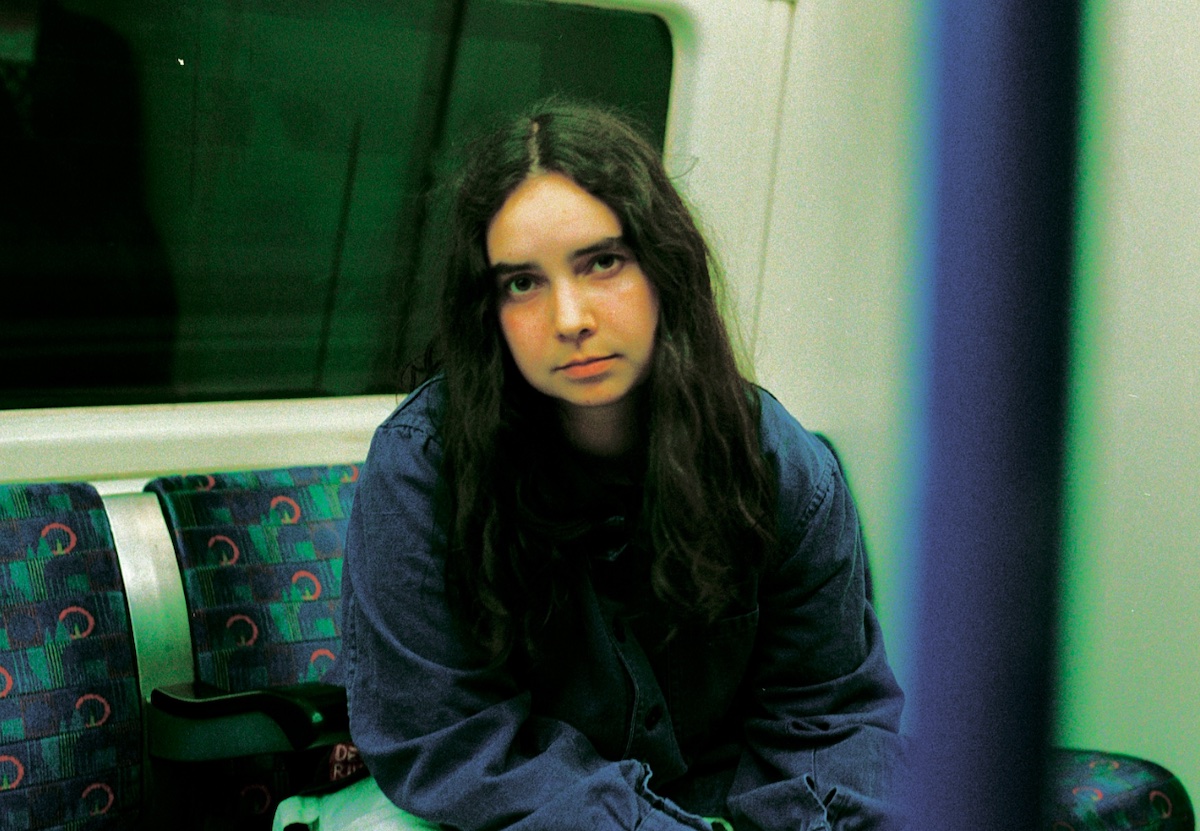
Having good friends and making sure that you’re hanging out with people that are just bringing you joy, you realize how important and how much that can add to your life.
For Bahrich, the story of this album is one of self-discovery and her own post-pandemic reemergence.
“Releasing The Funhouse EP kind of ties into the story of this album, because there’s such a huge change in my personal life between those EPs, which led to Lighthouse being what it is,” she tells Atwood Magazine. “Working on The Funhouse still in COVID and in a contained little world, and I wasn’t really seeing anybody. None of my friends lived here anymore. Everyone was off to university, and so I was just going into this chaos bubble in my brain, and that resulted in those songs.”
“Then when we went on tour in the US, while we were releasing those songs, and I was meeting other people who were making music and leading a pretty social life. And then I came home and fell in love, and there was so much light in my life that was pouring into me and out of me. And so these songs were a reflection of that.”
Bookended by barnburners “Mirrors” and “The Funhouse,” Bahrich’s most recent EP saw her blending hazy shoegaze with grunge in four heavy-hitting tracks, all “led by the delicate, angsty intensity of Bahrich’s quiet, deeply introspective and emotional vocals” (per Atwood’s Beau Hayhoe). The intensity that drove those songs forward remains as palpable as ever, though what was once a prevailing feeling of angst and inner churn now feels lighter and looser; it’s been replaced by a sense of, if not peace and tranquility, then excitement and enthusiasm – an infectious joie de vivre.
“For this album, hope is the prevailing feeling I’m left with after making it and listening to it. The idea is that there is this light guiding you out into a space where you can be more open and accepting of love and joy. Even as you gain or lose love, it never really goes away; it just transforms itself, moving into other relationships with you,” Bahrich smiles. It was conversations with her co-producer and collaborator Chris Hewett about first loves, and the hope and light those experiences bring into our lives, that ultimately influenced so many aspects of this record.
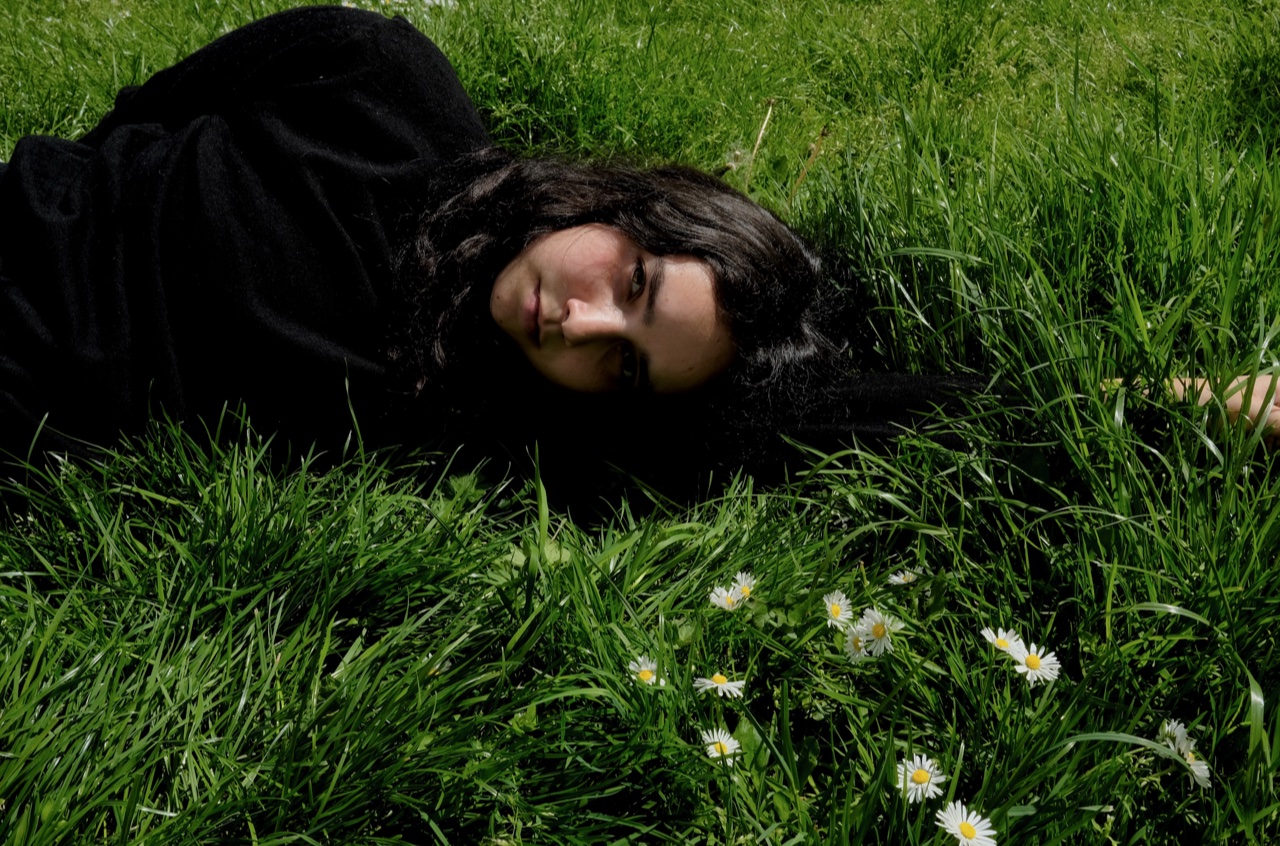
We’re introducing ourselves as a heart on the sleeve; we make the heavy ones fun too – screaming sad lyrics and painful lyrics is also a pretty joyful experience.
She candidly describes her music as open-hearted rock.
“All of the songs kind of have that element of release and catharsis, which makes them really fun to perform live,” she says.
The album’s title really does say it all.
“Lighthouses function in the dark, and the band has always played with this heavier, darker sound with more beautiful vocals on top,” Bahrich explains. “I wanted that image to reflect the whole sound of us as a band from the beginning to now, playing with that heaviness and that lightness. With this album, we’ve stepped more towards light and openness, and all these songs are outward facing towards hope. I felt like ‘lighthouse’ would be a good image to represent all of that together.”
Lighthouse‘s singles – “Real Love,” “First Touch,” “Blue Tuesday,” and most recently, “Give It Back to Me” – effectively captured the breadth and depth of this special record, and all the meaningful people and moments that inspired it. The very first teaser released off the album last July, “Real Love” aches in the very best of ways as Bahrich exposes her naked heart: “Real love isn’t real love when it’s not us,” she passionately exclaims in the chorus, her intimate, intense voice sending shivers down the spine as she sings about being in love with her best friend.
“For years, timing got in the way. I got in my own way, and then finally, it worked out,” she shared upon the song’s release last year. Celebratory though it may be, “Real Love” still feels bittersweet at heart. Francis of Delirium’s music always has a tinge of nostalgia, of brooding; of the general melancholy some of us feel throughout our lives, that we can’t quite control. But rather dwell in worries and woes, Bahrich allows herself to bask in the glow of a relationship’s cozy warmth and wonder. It feels good to be in love, and “Real Love” doesn’t wrestle with that fact; rather, it embraces it and hold on for dear life.
We were just kids when we met
And now we’re half drunk
on a twin sized bed
I would tenderly undress
Taken by the weight of your kiss
I say all the words I should’ve said
Im leaning my head into your chest
I fall back… I fall into
Real love isn’t real love when it’s not us…
Yet it’s two other singles that Bahrich herself chooses as some of her personal favorites off the album.
“‘First Touch’ feels like a song that I would want to listen to, even if I didn’t write it,” she says. “I know that I wrote the song, but somehow there’s a distance – in a good way – to it, where I can just enjoy it as a normal listener, which doesn’t normally happen with songs. I think [it has to do with] the whole atmosphere, production-wise. I really like the earthiness of the acoustic guitar, paired with the spaciness of the lead line, and the way that the vocals are kind of talk-singy.”
When I woke up in the morning
that was only for you
Saw signs on the buildings
saying everything’s coming true
Lights on these city streets waking me up
I think I love you but it’s never enough
When i woke up in the morning
that was only for you
Walked through the city swore I was bulletproof
Making fake names and jobs
Living for a lost cause
I remember when we first touched
I remember where we first fell in love
I remember when we first touched
I remember where we first fell in love
– “First Touch,” Francis of Delirium
She also saved her own personal best for last – literally: “Give It Back to Me,” the album’s final track, carries with it a resounding message of friendship, community, and embracing our connections with those around us. It served as an important creative and thematic touchstone throughout the album’s writing process, and now it’s the breathtaking sendoff this impassioned record deserves: A resounding closing number that sees Bahrich leaning into the light – reminding herself (and her audiences) what (really, who) matters most in life, and recommitting herself to her community and loved ones.
“‘Give It Back to Me’ is my favorite song I’ve ever written,” Bahrich says, her eyes lighting up. “I think I like the idea of the song. It’s leaning on your community, staying open through everything, remaining vulnerable, and allowing other people to also give that back to you. I just like the explosion of it; it’s so simple.”
When your darkness has a sound
When it fills your ears, and now
All you hear, it brings you down
Just give it back to me
When you’re going for a cure
When you’re never really sure
When I really want to just be yours,
Oh, give it back to me
Another unmissable moment, which Bahrich hopes people listen to connect with, is the album’s opening track, “Ballet Dancers (Never Love Again).”
“I just hope people listen to it, because it would be such a shame if people didn’t… There’s this bass line at the end that is just so good, and if people miss that, it would make me really sad. I hope people also listen to ‘Alone Tonight’ – [there’s] also cool bass stuff happening. It’s so fun to have someone else do something, and then you can talk about how awesome it is.”
“Alone Tonight” is also home to one of her favorite lyrics: “There’s a light in this tunnel. Some days it’s hard to define.”
“It’s the whole idea of this album moving towards, always facing towards light, openness, even when you can’t imagine that’s actually there,” she reflects, “But if you just push forward, at some point you’re going to stumble across something that is going to open you up again in a whole new way. So I like that one.”
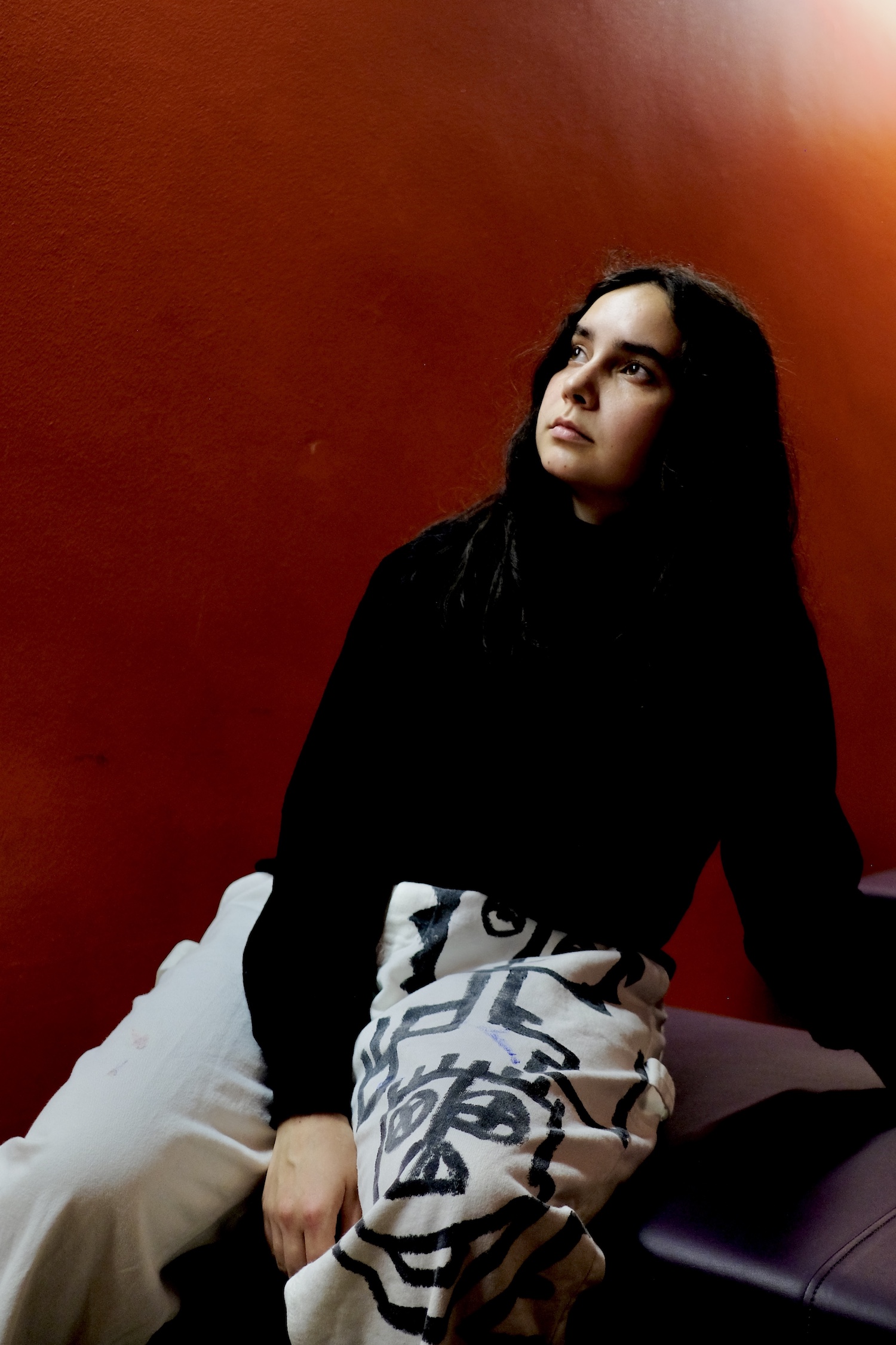
If you just push forward, at some point you’re going to stumble across something that is going to open you up again in a whole new way.
For Bahrich, Lighthouse will forever be a reminder of how important it is, for her, to be open to others.
“I think I realized how much I value people, especially coming from The Funhouse – so inward, self-contained, and kind of going crazy – to how much joy good people in your life can bring you. Having good friends and making sure that you’re hanging out with people that are just bringing you joy, you realize how important and how much that can add to your life.”
“Remain open to the people around you,” she says. That message is both her own personal takeaway from the album, and what she hopes others take away from her songs. “Prioritize the people that really matter and give you that kind of same love and energy back. It’s kind of interesting talking about an album that is facing into such a positive message; I feel less anxious these days than I have generally. I feel like maybe that’s something that the album has given me – a little bit more ease than normal.”
Francis of Delirium is shining a bold and bright indie rock light out on the world. With an open heart and a fire still burning in her soul, she’s ready for all that this life has to offer her.
Experience the full record via our below stream, and peek inside Francis of Delirium’s Lighthouse with Atwood Magazine as Jana Bahrich takes us track-by-track through the music and lyrics of her debut album!
— —
:: stream/purchase Lighthouse here ::
:: connect with Francis of Delirium here ::
Stream: ‘Lighthouse’ – Francis of Delirium
:: Inside Lighthouse ::
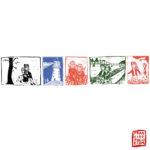
— —
Ballet Dancers (Never Love Again)
‘Ballet Dancers (NLA)’ felt like a natural way to start the album, it sets the stakes very high and felt like it introduced the palette of the album as well. I believe this song started from a jam that Chris and I had done later in the album process. Once I added production to it and began building out the sections that blossom and explode, it started to get exciting to me. I remember once the bones of the song were there I went off to Paris for the weekend. It’s very fast and easy to get to Paris from Luxembourg; I took the train and spent my whole time there listening to the song. I sat at this cafe called Le Pure Cafe, had my morning coffee, and Chris, who was still in Luxembourg, was sending me rough mixes of the song and was adding and changing the drums. So every few minutes, I’d get a little buzz, and then I would give feedback, and he would send over a new version.
Real Love
“Real Love” was very special because it was the first time we had worked with another producer and gone into a proper studio. “Real Love” and “First Touch” were recorded in London at Battery Studios with Catherine Marks producing. I think we were there for four days. It’s just always inspiring to see people who give their everything to creating music, and getting to watch Catherine do that and Richie Kennedy, who was engineering, do that was very special.
First Touch
“First Touch” is about the memory of love and holding onto the sweetness and youthfulness of it. Chris and I started it on drums and acoustic guitar, which marked a change for us in terms of songwriting. Bringing out the acoustic guitar over the electric guitar let the songs expand and breathe a bit more. I felt like I could try out some different things with my voice, that there was more space for my lower register, and I wasn’t fighting against some of the frequencies of the electric.
Want You
This song’s production was loosely inspired by Glen Campbell and Paul Simon. I had the songs “Wichita Lineman” and “Graceland” somewhere in the back of my mind for this one. Once again ‘Want You’ is a song that started on acoustic guitar and drums, and Chris was playing a cool drum pattern that felt like it really pushed the song forward, so it felt less like a mid-tempo ballad, which I really liked.
Blue Tuesday
“Blue Tuesday” is about desire and the urgency of that feeling. I wanted there to be a lot of movement in the lyrics and intensity, and likewise in the music, to kind of emulate the urgency of wanting someone. I had a lot of fun adding all those harmonies into the song. I had shown Denis, who plays the drums on the album, an early version and then played him a later version, and at the beginning, he couldn’t recognize the song at all, the harmonies really made a huge difference and added a lot of life to the track.
Cliffs
The synth line in the beginning was kind of inspired by the Main Theme from ‘Cannibal Holocaust’ by Riz Ortolani; the synth sound is, at least. I actually have no clue how I even came across that song. I feel like I read an interview and someone mentioned it, and then I went and listened and loved it. Never seen the movie, but the cover art for the album is horrendous. Anyways, then I was watching an episode of the TV show Euphoria, and they played that song at the end of it, and maybe it re-triggered my inspiration. We already had the song mostly written, and then I was messing around with some production ideas and decided to try a little Cannibal Holocaust-inspired sound I made by just taking a standard synth and throwing some Decapitator on there from Sound Toys.
Starts to End
A big part of the album is opening up and being more vulnerable and having that reflect in the music. So it was important for me to bring on more people to collaborate with, to open up the sound, so we brought in a cellist called Victor Costa, who was very happy to just come into the studio and experiment, which was really helpful. I’m not very good at conceiving things beforehand; I sort of have to try, or someone else has to start, and then once I’ve tried something, I can correct its course and I have a clearer idea of what direction I want to go in, so it was great to just have him there to just go for it and then start to refine what he was doing.
Alone Tonight
The opening line in the song “I’ve been thinking about Bristol, wondering how he’s been doing” is meant to be an homage to going on tour. Tour is such a funny thing because you go and do this very beautiful, intense, sometimes stressful thing with people you have never met before, which brings you closer to them in a very short amount of time, and then you separate ways and you sort of watch their life from the outside. So you just think about the people you’ve gone on tour with from time to time because you care about them and hope they are doing well and maybe you’ll see them if they are at a show in town or if you are playing a show in their town, but I guess not living in the same place makes it a challenge to stay in proper touch. Tour and sharing music with people are such a special thing for me, so I wanted to honor that.
Something’s Changed
I’m excited to play this track live. This song was inspired production-wise by early 2000s alternative bands, with that sweet sadder intro which leads into a more explosive chorus. Chris, who I write with, writes the drum parts and then gives them to Denis, our live drummer, to record them, and Chris loves to play/write triple kicks into the drum patterns (see also “First Touch,” which we actually changed from triple kick to tom hits), which can kind of be a nightmare to get tight, so the drums were a bit more of a challenge for this song, but Denis is just a wonderful drummer; he always nails it.
Who You Are
Similarly to what I wrote with “Starts to End,” I want to highlight one of the other musicians we brought into the recording process, which is a wizard named Pol Belardi. He is a wicked bass player and added so much to the album. I play the bass like a guitar, and he really knows how to play the bass. He plays a whole lot of different music, and we connected because he arranged the “Orchestral Session” I did a few years ago. He has a level of proficiency that is amazing, and so we sat together a few times before we went into the studio, uncovering riffs and melodies in the bass, but this is a song he was just able to fly on because there’s a lot more space for the bass to just go kind of crazy.
Give It Back to Me
To me, “Give It Back to Me” is about leaning on your community and them being able to, in turn, lean/rely on you. I feel like opening yourself up to romantic love in your life can, in turn, strengthen the other relationships you have as well. If you’re willing to stay vulnerable with the people that matter to you, then you open the door for them to do the same with you. So it’s just about having that kind of mutual exchange of trust, support, and love within your community and your close circle.
— —
:: stream/purchase Lighthouse here ::
:: connect with Francis of Delirium here ::
Stream: “Give It Back to Me” – Francis of Delirium
— — — —

Connect to Francis of Delirium on
Facebook, Twitter, TikTok, Instagram
Discover new music on Atwood Magazine
© Holly Whitaker
Lighthouse
an album by Francis of Delirium

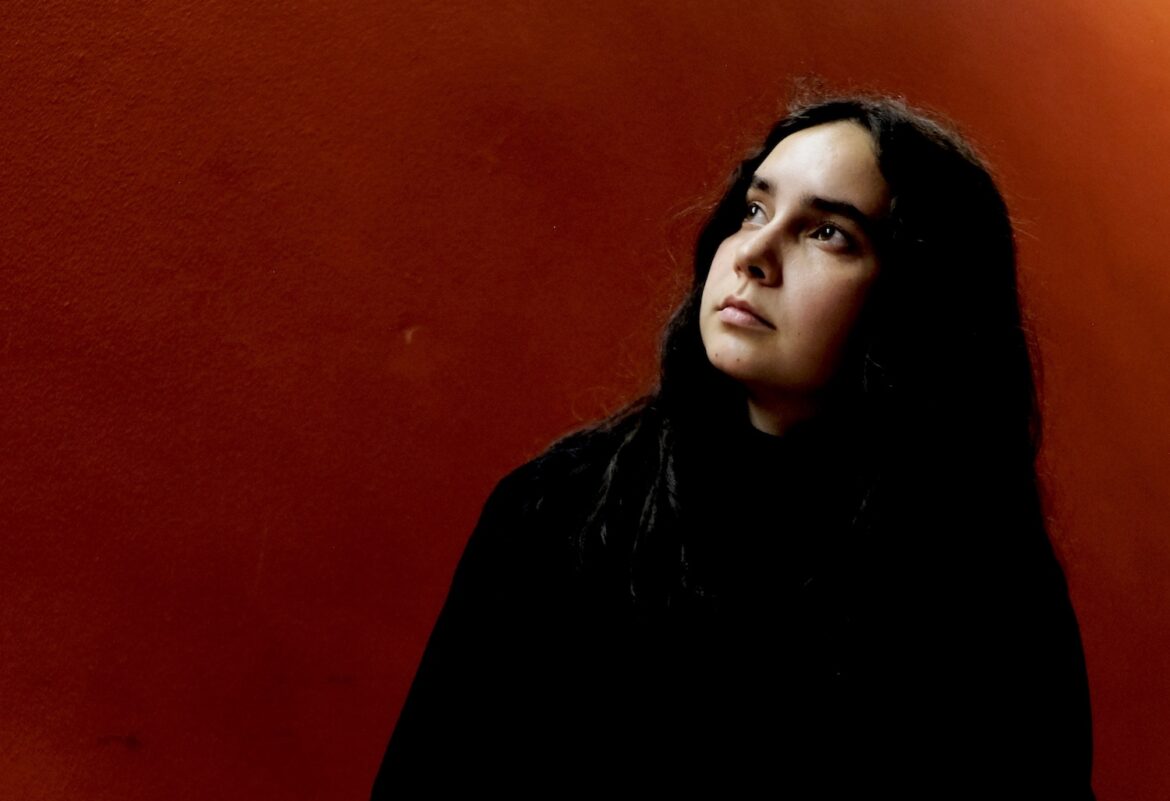
 © Holly Whitaker
© Holly Whitaker